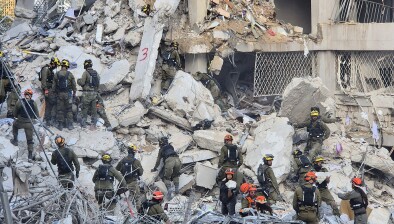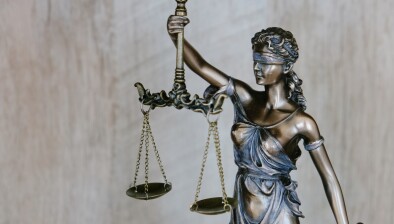Amnesty: Iranian president’s death should not deny truth and justice

The death of Iranian president Ebrahim Raisi must not deny people in Iran their right to truth and justice for a litany of crimes under international law committed during his time in the higher echelons of power, human rights campaigners have said.
Raisi and Iranian foreign affairs minister Hossein Amirabdollahian were killed in a helicopter crash on Sunday, according to Iranian state media.
In the 1980s, Raisi was part of what has been dubbed the “Death Commission”, which carried out the disappearance and extrajudicial execution of thousands of political dissidents, most of them linked to communist groups.
From 2019 to 2021, he headed Iran’s judiciary at a time when it subjected tens of thousands of people to arbitrary arrest, enforced disappearance, torture, grossly unfair trials, and punishments violating the prohibition of torture and other ill-treatment, such as flogging, amputation and stoning.
Under Raisi’s watch, the judiciary also granted blanket impunity to government officials and security forces suspected of criminal responsibility for unlawfully killing hundreds of men, women and children, and subjecting thousands of protesters to mass arbitrary arrest during and in the aftermath of the nationwide protests of November 2019.
In 2022, as Iran’s president and chair of the Supreme Council of National Security during the “Woman Life Freedom” uprising, Raisi praised and oversaw a violent crackdown by the security forces.
This included the unlawful killing of hundreds of protesters and bystanders, and injuries to thousands of others, as well as the torture and other ill-treatment — including rape and other forms of sexual violence — of arrested protesters.
Diana Eltahawy, Amnesty’s Middle East and North Africa deputy director, said: “Ebrahim Raisi should have been criminally investigated, including for the crimes against humanity of murder, enforced disappearance and torture, while he was alive.
“Raisi’s legacy serves as a stark reminder of the crisis of impunity in Iran where those reasonably suspected of crimes under international law not only evade responsibility, but are rewarded with praise and high-ranking positions within the Islamic Republic’s machinery of repression.
“His death must not rob his victims and their families of their right to truth, and to see all others complicit in his crimes held to account.
“The international community must act now to establish pathways to accountability for victims of crimes under international law and other serious human rights violations committed by Ebrahim Raisi and other Iranian officials.”








